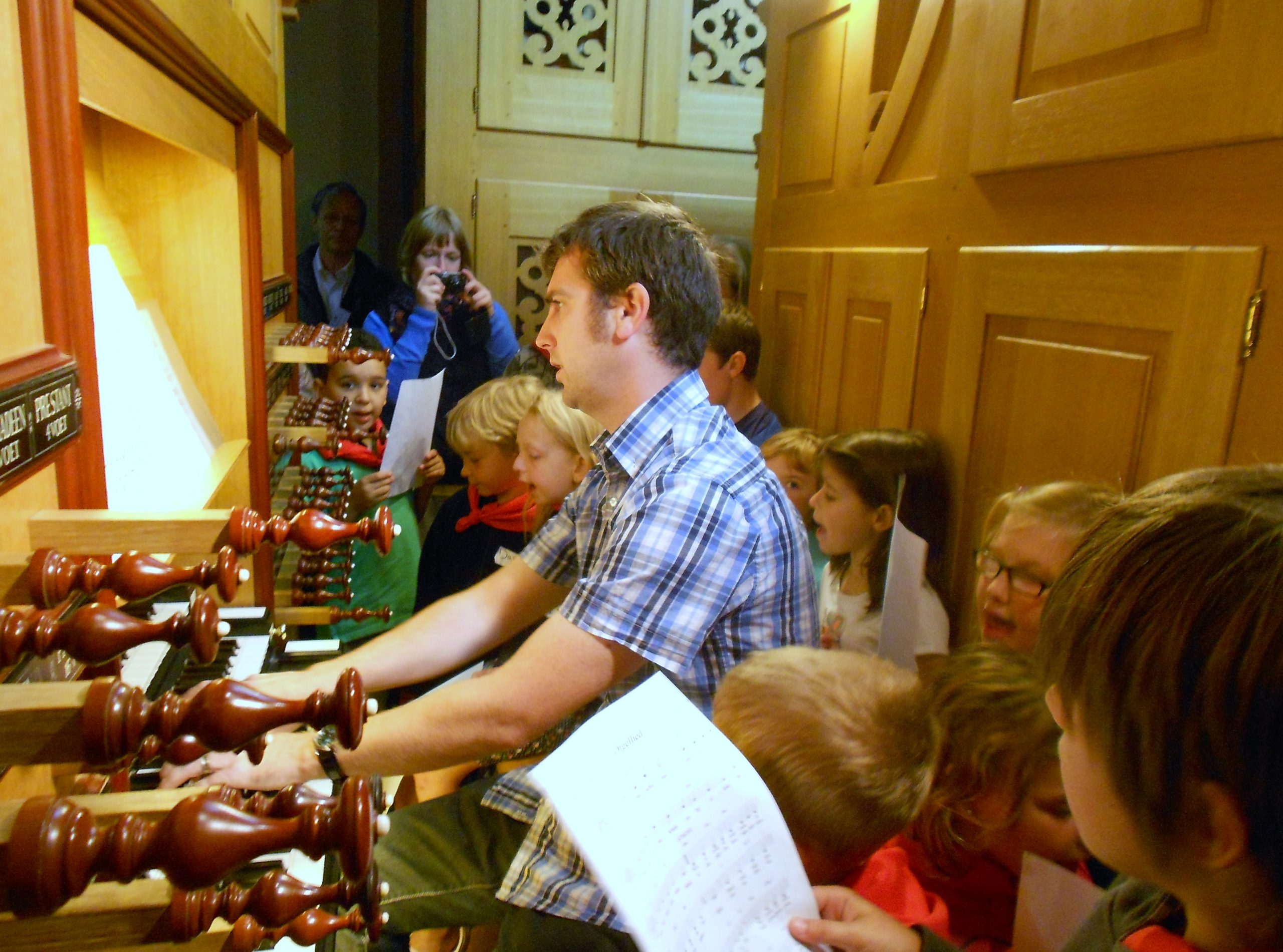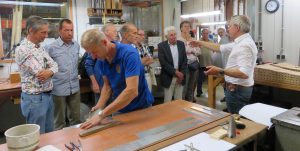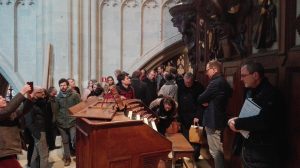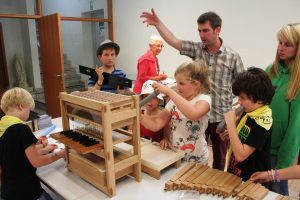
“How to get people involved in the Organ?” was the question in 1990 when Het Orgel in Vlaanderen (“The Organ in Flanders”) was founded. And Furthermore: how to maintain and to improve the organ culture and the organ heritage of Flanders.
In the year 2020, Het Orgel in Vlaanderen is celebrating its 30th anniversary. But truly celebrating will not be possible at this moment. Covid-19 does not allow the festive program to take place. Organ trips, a concert and festive session have been postponed for the time being. But on the other hand, Covid-19 also offers new possibilities: A virtual organ-tour was organized on Heritage Days in Flanders (13 September). Everyone could, and still can, do the tour via the YouTube channel of Het organ in Vlaanderen.
 Over the past 30 years, the organization has grown into a centre of expertise around “the queen (or king?) of instruments.” Not only are activities being developed to reach new audiences, but events are also being organized for non-professional organists such as courses and playing opportunities on large organs. In addition, the association is advising and helping local projects that bring organ heritage to a larger public. In the context of church reuse, finally, Het Orgel in Vlaanderen has been able to support church councils and others with the replacements of instruments and utilisation of organs.
Over the past 30 years, the organization has grown into a centre of expertise around “the queen (or king?) of instruments.” Not only are activities being developed to reach new audiences, but events are also being organized for non-professional organists such as courses and playing opportunities on large organs. In addition, the association is advising and helping local projects that bring organ heritage to a larger public. In the context of church reuse, finally, Het Orgel in Vlaanderen has been able to support church councils and others with the replacements of instruments and utilisation of organs.
These developments have happened over the years. Between 1990 and 2000, the most important issue was the realisation of “the Day of the Organ”, organ concerts with free admittance (first in Bruges, and later in different cities of Flanders), the making and distributing of photographs of Flemish historical organs, and the publication of a modest newsletter for members. After moving to Antwerp in 2000, and an enlargement of the Board of directors with deputies of the cultural world in Flanders, a lot of activities have been developed:
- The “Day of the Organ” became part of the yearly Flemish “Day of the Monuments”, and was renamed “The Organ on Open Monument Day”.
- The website www.orgelinvlaanderen.be was launched, and since 2005 we have also distributed the monthly organ mail newspaper.
- The magazine for members changed from bi-monthly to tri-monthly and was renamed “Information magazine of Flemish Organ culture”. In 2007, the initiative was launched to promote Flemish organ work and the March issue received a musical supplement.
- Activities like Flemish Organ days (a weekend with a competition for non-professional organists, with different concerts and workshops) and the Summer Academy.
- Its own cd-label “Vision-Air”, with recordings that are called “Flemish Organ Treasure”
- Pedagogical seminars for organ teachers are annually organized in collaboration with OVSG.
In 2010 a true metamorphosis started. It then became clear that the natural habitat (churches, chapels) of organ heritage began to come under pressure. To preserve the enormous organ heritage in Flanders and Europe for the future we also had to look to the relationship between the organ and heritage.  Het Orgel in Vlaanderen evolved from a classical association with members, a magazine and member activities into a broader organization.
Het Orgel in Vlaanderen evolved from a classical association with members, a magazine and member activities into a broader organization.
It became a “privileged partner” of the Agency for Heritage of the Flemish Government. In addition, it became a partner organization of HERITA and Parcum (also members of FRH), among others. Expertise on the reuse of organs was also shared with local authorities and church councils.
Larger projects were realized, such as “Pure Organ Passion” and the “Organ Week Wilrijk”, which included exhibitions, concerts, children’s activities, and workshops. The Flemish part of “Connecting Arts The European Organ Festival”, which was accompanied by the celebration of the 450/50 year Diocese of Antwerp, also falls under this heading.
A very important issue is to raise awareness among children and young people of organs. After all, if we cannot inspire the youth to be interested in organs, who will play the instruments and take care of them in the future? A project was started with Orgelkids from the Netherlands in 2015. As a result of secularization, fewer children attend to church services, and because of that, they do not come into contact ea sily with organs and organ music. The Orgelkids organ is a mechanical, two rank pipe organ in a box. In the box, you will find all the parts to build a real organ. The Orgelkids box is used by organ teachers, schools, local authorities, cultural organizations and others.
sily with organs and organ music. The Orgelkids organ is a mechanical, two rank pipe organ in a box. In the box, you will find all the parts to build a real organ. The Orgelkids box is used by organ teachers, schools, local authorities, cultural organizations and others.
The next steps were the development of a digital app, now in need of renewal, and the reprinting of the educational booklet “The Organ”.
Finally, the boundaries, both literally and figuratively, were also shifted. Partnerships with Orgues Nouvelles and the Gesellschaft der Orgelfreunde were established and our organisation became a member of Interpret Europe and Future for Religious Heritage.
The core objective is still the same: to preserve and pass on the rich culture of organs, but has now expanded to incorporate the organ in a changing society. The newest focus that has recently been included in the objective and operations is the future of organ building and, by extension, crafts. This is done in close collaboration with the ad hoc working group within FRH. More information about this will soon be released by FRH.
In 30 years, Het Orgel in Vlaanderen has come a long way, but the challenges have not diminished, on the contrary. More than ever, organs are under pressure, and attention must be given to the phenomenal organ heritage in all countries through as many ways as possible. Het Orgel in Vlaanderen therefore continues to expand its operations and assignments around the objective “How to get people involved with “the Organ” in the future?”
Find more information on our website www.orgelinvlaanderen.be where you can also find out how to contact us.
By Daniel Vanden Broecke





Follow us: